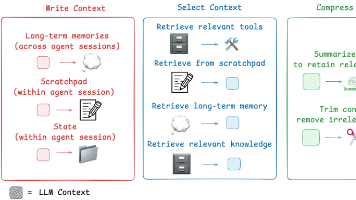【人工智能】:搭建本地AI服务——Ollama、LobeChat和Go语言的全方位实践指南
Go语言适合构建高性能中间件。创建Go项目并初始化模块,安装必要的依赖如gin和ollama的Go SDK。编写API路由处理前端请求并转发至Ollama服务。= nil {return})Go语言适合构建高性能中间件。创建Go项目并初始化模块,安装必要的依赖如gin和ollama的Go SDK。编写API路由处理前端请求并转发至Ollama服务。
搭建本地AI服务实践指南
本指南将介绍如何使用Ollama、LobeChat和Go语言搭建一个功能完备的本地AI服务。以下是完整实现方案:
Ollama本地模型部署
package main
import (
"fmt"
"os/exec"
)
func setupOllama() {
cmd := exec.Command("ollama", "pull", "llama2")
output, err := cmd.CombinedOutput()
if err != nil {
fmt.Printf("Error pulling model: %v\n%s", err, output)
return
}
fmt.Println("Model downloaded successfully")
serveCmd := exec.Command("ollama", "serve")
if err := serveCmd.Start(); err != nil {
fmt.Printf("Error starting ollama: %v", err)
return
}
fmt.Println("Ollama service started")
}
LobeChat集成
func configureLobeChat() {
// 安装依赖
cmd := exec.Command("npm", "install", "-g", "lobe-chat")
output, err := cmd.CombinedOutput()
if err != nil {
fmt.Printf("Error installing LobeChat: %v\n%s", err, output)
return
}
// 配置环境变量
os.Setenv("OLLAMA_PROXY", "http://localhost:11434")
os.Setenv("ALLOWED_ORIGINS", "*")
// 启动服务
lobeCmd := exec.Command("lobe-chat", "start")
if err := lobeCmd.Start(); err != nil {
fmt.Printf("Error starting LobeChat: %v", err)
return
}
fmt.Println("LobeChat service started")
}
Go语言API服务
package main
import (
"encoding/json"
"net/http"
"io/ioutil"
)
type ChatRequest struct {
Prompt string `json:"prompt"`
Model string `json:"model"`
}
type ChatResponse struct {
Response string `json:"response"`
}
func chatHandler(w http.ResponseWriter, r *http.Request) {
var req ChatRequest
if err := json.NewDecoder(r.Body).Decode(&req); err != nil {
http.Error(w, err.Error(), http.StatusBadRequest)
return
}
// 调用Ollama API
resp, err := http.Post(
"http://localhost:11434/api/generate",
"application/json",
bytes.NewBuffer([]byte(fmt.Sprintf(`{
"model": "%s",
"prompt": "%s"
}`, req.Model, req.Prompt))),
)
if err != nil {
http.Error(w, err.Error(), http.StatusInternalServerError)
return
}
defer resp.Body.Close()
body, _ := ioutil.ReadAll(resp.Body)
var result ChatResponse
json.Unmarshal(body, &result)
json.NewEncoder(w).Encode(result)
}
func main() {
http.HandleFunc("/api/chat", chatHandler)
fmt.Println("Server running on :8080")
http.ListenAndServe(":8080", nil)
}
前端调用示例
async function sendMessage(prompt) {
const response = await fetch('http://localhost:8080/api/chat', {
method: 'POST',
headers: {
'Content-Type': 'application/json',
},
body: JSON.stringify({
prompt: prompt,
model: 'llama2'
})
});
return await response.json();
}
系统架构说明
- Ollama负责本地LLM模型的加载和推理
- LobeChat提供用户友好的聊天界面
- Go语言服务作为中间层处理业务逻辑和API路由
- 前端应用通过HTTP请求与后端交互
部署注意事项
- 确保系统有足够内存运行所选模型
- 开发环境需要安装Node.js和Go
- 生产环境建议使用Docker容器化部署
- 安全考虑应限制API访问权限
安装与配置Ollama
Ollama作为本地AI模型管理工具,支持多种开源模型。从官网下载对应操作系统的安装包,完成基础安装后通过命令行验证是否成功。
启动Ollama服务后,使用ollama pull命令下载所需模型,例如ollama pull llama2。模型下载完成后,通过ollama run llama2进行交互测试,确保模型正常运行。
部署LobeChat前端
LobeChat是一个开源的AI对话界面,支持与Ollama后端对接。克隆LobeChat的GitHub仓库到本地,安装Node.js依赖并启动开发服务器。
修改LobeChat的配置文件,将其API端点指向本地Ollama服务。例如在config.json中设置"API_BASE_URL": "http://localhost:11434"。运行npm run dev启动前端,通过浏览器访问http://localhost:3000验证连接。
使用Go语言开发自定义中间件
Go语言适合构建高性能中间件。创建Go项目并初始化模块,安装必要的依赖如gin和ollama的Go SDK。编写API路由处理前端请求并转发至Ollama服务。
package main
import (
"github.com/gin-gonic/gin"
"github.com/jmorganca/ollama/api"
)
func main() {
r := gin.Default()
r.POST("/chat", func(c *gin.Context) {
client := api.NewClient("http://localhost:11434")
resp, err := client.Chat(c.Request.Context(), &api.ChatRequest{
Model: "llama2",
Messages: []api.Message{
{Role: "user", Content: "Hello"},
},
})
if err != nil {
c.JSON(500, gin.H{"error": err.Error()})
return
}
c.JSON(200, gin.H{"response": resp.Message.Content})
})
r.Run(":8080")
}
集成与测试
将Go中间件部署在LobeChat和Ollama之间,确保三者通信正常。通过Postman或curl测试中间件API,验证请求能否正确转发并返回AI生成的响应。
调整LobeChat的界面配置,使其指向Go中间件地址而非直接连接Ollama。这种架构允许添加额外逻辑,如请求过滤、响应缓存或负载均衡。
性能优化与扩展
启用Ollama的GPU加速功能(若硬件支持),在启动时添加--gpu参数提升推理速度。Go中间件可集成Prometheus监控,实时跟踪请求延迟和成功率。
扩展场景下,可通过Docker容器化Ollama和Go服务,使用Kubernetes管理多实例部署。LobeChat支持插件开发,可自定义UI组件或添加第三方API集成。
安装与配置Ollama
Ollama作为本地AI模型管理工具,支持多种开源模型。从官网下载对应操作系统的安装包,完成基础安装后通过命令行验证是否成功。
启动Ollama服务后,使用ollama pull命令下载所需模型,例如ollama pull llama2。模型下载完成后,通过ollama run llama2进行交互测试,确保模型正常运行。
部署LobeChat前端
LobeChat是一个开源的AI对话界面,支持与Ollama后端对接。克隆LobeChat的GitHub仓库到本地,安装Node.js依赖并启动开发服务器。
修改LobeChat的配置文件,将其API端点指向本地Ollama服务。例如在config.json中设置"API_BASE_URL": "http://localhost:11434"。运行npm run dev启动前端,通过浏览器访问http://localhost:3000验证连接。
使用Go语言开发自定义中间件
Go语言适合构建高性能中间件。创建Go项目并初始化模块,安装必要的依赖如gin和ollama的Go SDK。编写API路由处理前端请求并转发至Ollama服务。
package main
import (
"github.com/gin-gonic/gin"
"github.com/jmorganca/ollama/api"
)
func main() {
r := gin.Default()
r.POST("/chat", func(c *gin.Context) {
client := api.NewClient("http://localhost:11434")
resp, err := client.Chat(c.Request.Context(), &api.ChatRequest{
Model: "llama2",
Messages: []api.Message{
{Role: "user", Content: "Hello"},
},
})
if err != nil {
c.JSON(500, gin.H{"error": err.Error()})
return
}
c.JSON(200, gin.H{"response": resp.Message.Content})
})
r.Run(":8080")
}
集成与测试
将Go中间件部署在LobeChat和Ollama之间,确保三者通信正常。通过Postman或curl测试中间件API,验证请求能否正确转发并返回AI生成的响应。
调整LobeChat的界面配置,使其指向Go中间件地址而非直接连接Ollama。这种架构允许添加额外逻辑,如请求过滤、响应缓存或负载均衡。
性能优化与扩展
启用Ollama的GPU加速功能(若硬件支持),在启动时添加--gpu参数提升推理速度。Go中间件可集成Prometheus监控,实时跟踪请求延迟和成功率。
扩展场景下,可通过Docker容器化Ollama和Go服务,使用Kubernetes管理多实例部署。LobeChat支持插件开发,可自定义UI组件或添加第三方API集成。
更多推荐
 已为社区贡献6条内容
已为社区贡献6条内容








所有评论(0)